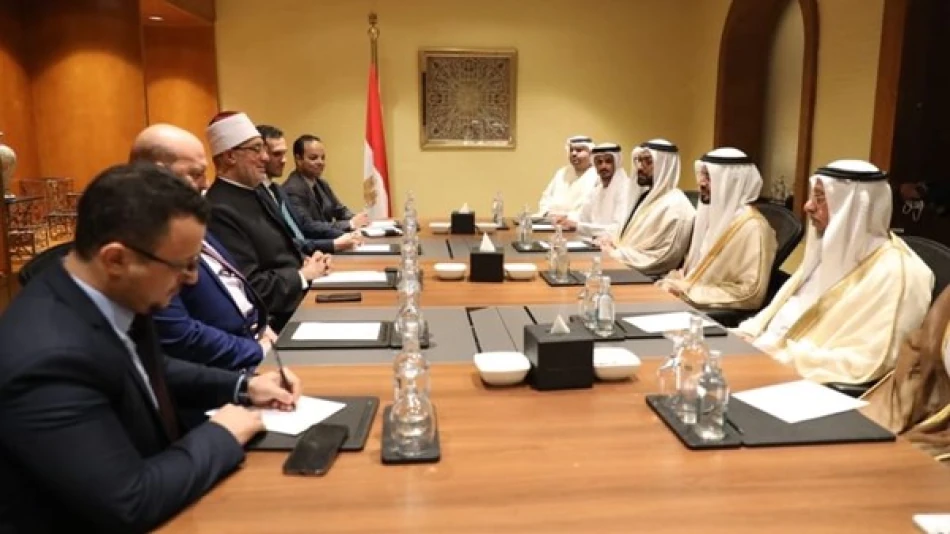
UAE and Egypt Explore AI's Potential in Issuing Fatwas: Boosting Digital Religious Guidance
UAE and Egypt Forge Digital Partnership to Modernize Islamic Religious Guidance
The United Arab Emirates and Egypt are deepening their collaboration in Islamic jurisprudence, with a particular focus on leveraging artificial intelligence and digital technologies to deliver religious guidance to modern Muslim communities. This partnership signals a broader trend among Gulf nations to position themselves as leaders in tech-enabled Islamic scholarship while addressing contemporary religious challenges.
High-Level Diplomatic Engagement in Cairo
Dr. Omar Habtoor Al Darei, Chairman of the UAE's General Authority of Islamic Affairs and Endowments, met with Egypt's Grand Mufti Dr. Nazir Mohammed Ayyad during the "Crafting the Wise Mufti in the Age of Artificial Intelligence" conference in Cairo. The meeting included senior officials from both nations, including Dr. Khalifa Mubarak Al Dhaheri, Director of Mohammed bin Zayed University for Humanities, and Dr. Saba Salem Al Kaabi, Secretary-General of the UAE Council for Islamic Legal Rulings.
AI-Powered Religious Guidance: A Strategic Imperative
Addressing Modern Challenges Through Technology
The discussions centered on utilizing digital technologies and artificial intelligence to deliver accurate religious rulings (fatwas) to diverse communities. This approach reflects growing recognition that traditional methods of religious communication may not effectively reach younger, tech-savvy Muslim populations or address rapidly evolving social issues.
Regional Competition for Islamic Authority
This UAE-Egypt partnership mirrors similar initiatives across the Middle East, where nations are competing to establish themselves as authoritative voices in modern Islamic scholarship. Saudi Arabia has invested heavily in digital religious platforms, while Qatar and Kuwait have launched their own tech-enabled religious guidance systems.
Market and Institutional Implications
The integration of AI into religious guidance represents a significant shift in how Islamic institutions operate and maintain relevance. For the UAE, this partnership strengthens its soft power credentials while supporting its broader AI strategy, which aims to make the country a global leader in artificial intelligence by 2031.
Egypt's participation leverages its historical position as a center of Islamic learning through Al-Azhar University, potentially creating new revenue streams through technology exports and religious education services. The collaboration could also influence how Islamic fintech products are developed and marketed across the region.
Broader Implications for Islamic Scholarship
This initiative reflects a pragmatic response to the challenge of maintaining religious authority in an increasingly digital world. By proactively embracing AI, both nations are positioning themselves ahead of more conservative approaches that might resist technological integration in religious matters.
The partnership also suggests a recognition that contemporary issues—from cryptocurrency regulations to bioethics—require rapid, accessible religious guidance that traditional consultation methods cannot efficiently provide. Success in this venture could establish a template for other Muslim-majority nations seeking to modernize their religious institutions while maintaining doctrinal integrity.
Most Viewed News

 Layla Al Mansoori
Layla Al Mansoori






